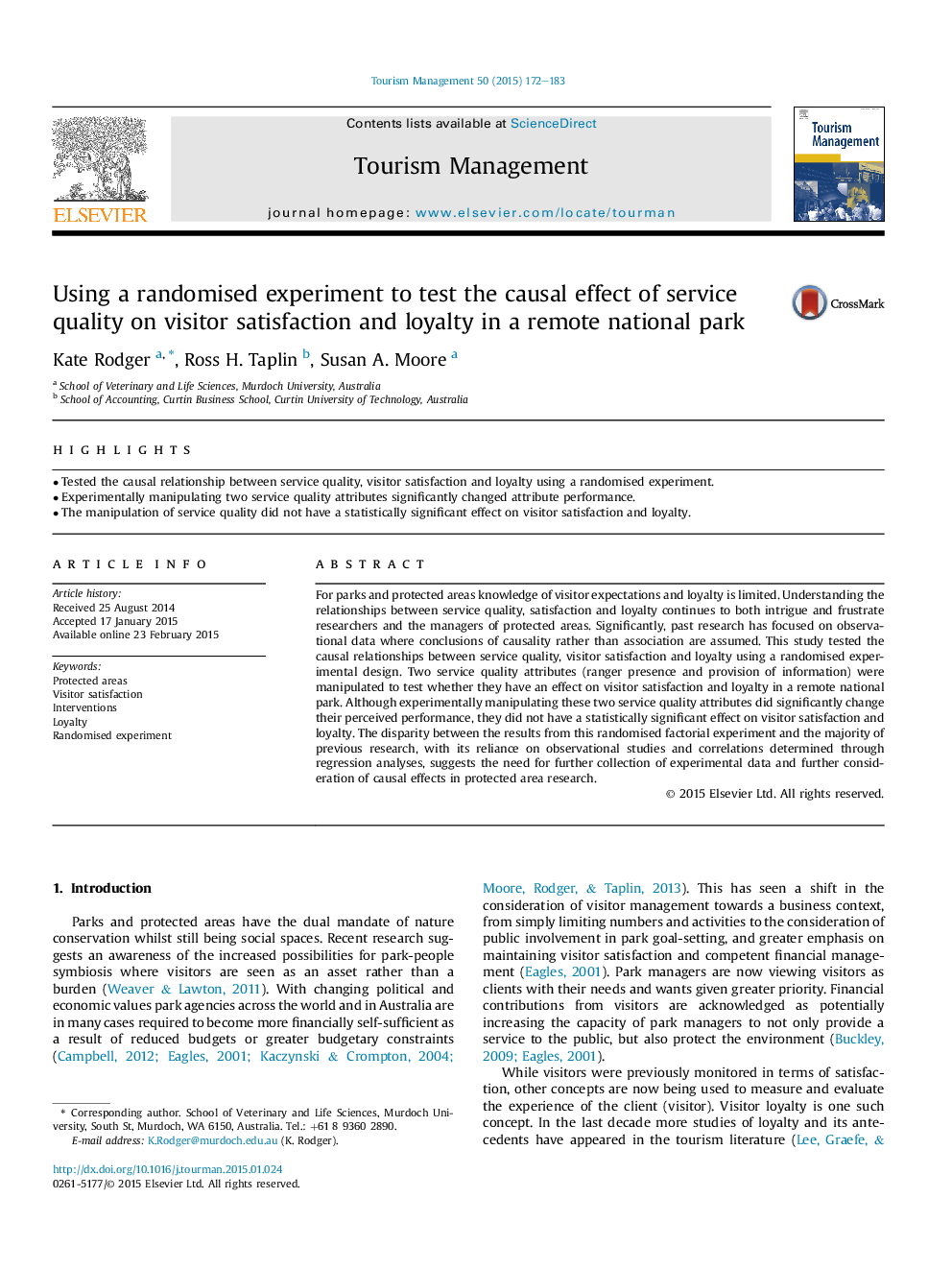| Article ID | Journal | Published Year | Pages | File Type |
|---|---|---|---|---|
| 1011912 | Tourism Management | 2015 | 12 Pages |
•Tested the causal relationship between service quality, visitor satisfaction and loyalty using a randomised experiment.•Experimentally manipulating two service quality attributes significantly changed attribute performance.•The manipulation of service quality did not have a statistically significant effect on visitor satisfaction and loyalty.
For parks and protected areas knowledge of visitor expectations and loyalty is limited. Understanding the relationships between service quality, satisfaction and loyalty continues to both intrigue and frustrate researchers and the managers of protected areas. Significantly, past research has focused on observational data where conclusions of causality rather than association are assumed. This study tested the causal relationships between service quality, visitor satisfaction and loyalty using a randomised experimental design. Two service quality attributes (ranger presence and provision of information) were manipulated to test whether they have an effect on visitor satisfaction and loyalty in a remote national park. Although experimentally manipulating these two service quality attributes did significantly change their perceived performance, they did not have a statistically significant effect on visitor satisfaction and loyalty. The disparity between the results from this randomised factorial experiment and the majority of previous research, with its reliance on observational studies and correlations determined through regression analyses, suggests the need for further collection of experimental data and further consideration of causal effects in protected area research.
